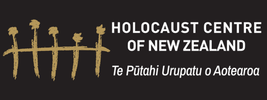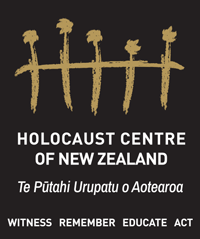|
Marc Daalder
The news out of the U.K. last week, that a political candidate had tweeted about “sweating like a Jew in an attic”, ought to serve as a reminder. The behaviour of George Stoakley, whose Conservative candidacy in local elections in Cambridgeshire has since been suspended by the party for these old tweets, is emblematic of the fading awareness of the Holocaust in Western society more broadly. While a recent poll of young Americans found that two-thirds don’t know what Auschwitz was, the issue extends beyond lack of knowledge. Ignorance is perhaps somewhat understandable, and will undoubtedly be the topic of a future post, but right now I want to discuss the ways in which the seriousness of the Holocaust is undermined through blasé references and jokes made in poor taste. Stoakley is just a symptom of a broader problem in this context. More examples abound – a German rap duo that boasted in a song about how their bodies were “more defined than Auschwitz prisoners” nonetheless received the country’s highest music award in April and a German theatre hosting a play on Hitler’s adolescence offered free entry to anyone willing to wear a swastika. Such behaviour can have two negative effects – encouraging harsher forms of Holocaust denial and expunging the strong cultural taboos against anti-Semitism that have built up in the West in the aftermath of the Holocaust. These challenges to the historical facts of the Holocaust, which I discussed briefly in my post on Poland’s new Holocaust laws, threaten to erase the crimes of the Nazis from our consciousness. In Berlin, for example, there was a 60% increase in anti-Semitic incidents last year, the American Anti-Defamation League reported the single highest spike in anti-Semitic attacks in 40 years, and also last year the President of the New Zealand Jewish Council told Stuff that anti-Semitism was on the rise in New Zealand. How can we tackle the attitudes towards the Holocaust that make such jokes palatable in the minds of some? There is no better way to do this than education. A 2007 paper in Educational Review found that Holocaust education in Scotland both lessened rates of racism and bigotry in pupils and also fostered positive citizenship values. Outside of school, we can take on the onus ourselves to teach our families and communities about the Holocaust. The Holocaust Centre of New Zealand is an excellent resource for this. In fact, it will be hosting an international exhibition on Anne Frank this month, one that Mr. Stoakley ought to see before the next time he tweets about Jewish people and attics. These views are the author’s own and do not necessarily reflect the views of the Holocaust Centre of New Zealand.
0 Comments
Leave a Reply. |


